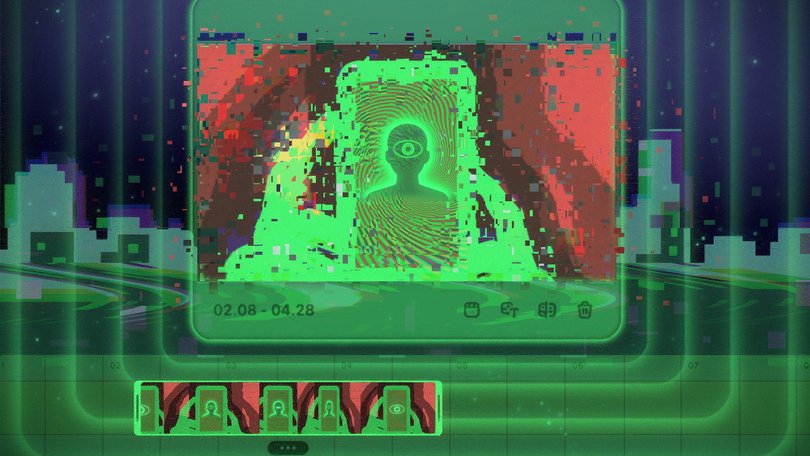SXSW Sydney: Everything you need to know about AI in 2026
From video fakery to chatbot friendships and AI personal assistants, here is all you need to know about AI in 2026.

In a year where artificial intelligence is rapidly blurring the lines between fact and fiction, OpenAI’s launch of Sora 2 has marked a seismic shift in how video content is created and consumed.
Executive editor of MIT Technology Review, Niall Firth, warns this isn’t just a creative revolution, it’s a misinformation minefield.
“It’s a spectacular opportunity for misinformation because now we don’t know what is real and what is not,” Firth said at the influential creative arts festival SXSW Sydney on Wednesday.
Sign up to The Nightly's newsletters.
Get the first look at the digital newspaper, curated daily stories and breaking headlines delivered to your inbox.
By continuing you agree to our Terms and Privacy Policy.But one thing is for certain, we know that the world of AI is fast-moving, confusing and full of hype. Here’s what you need to know about the biggest trends and ideas shaping AI in 2026.
Generative video is about to get wilder
Social media is already flooded with bizarre AI videos. Most recently ones featuring deceased celebrities such as Michael Jackson rapping in a KFC and Tupac Shakur strolling down the streets of Cuba have caused a stir online.
As text-to-video tools becomes more powerful, Mr Firth warns of an internet overrun by content that is convincing enough to deceive, but completely detached from reality, aka “AI slop”.
“There are potential recursive problems here because AI models are trained entirely on what is on the internet,” Mr Firth said.
Audiences may embrace this new genre of endlessly scrollable, entirely fabricated content but the risks are real, the tech expert warned.
It’s becoming alarmingly easy to create realistic videos of yourself, your friends or public figures, with no way to tell the difference., he said

The first short film made entirely with the AI tool Frostbite is not be Oscar-worthy but it’s a chilling preview of where AI is heading. Another example is Air Head, a short film by Shy Kids, showcasing Sora’s potential for creative experimentation.
“By no means is it absolutely wonderful filmmaking,” Mr Firth said.
“It’s no high art, but it really gives you an insight into where things are likely to be going with AI-generated videos.”
More people will have chatbot friendships
The growing trend of people forming emotional bonds with AI chatbots was laid bare in research by MIT at SXSW Sydney.
“People are stumbling into these relationships just like you would with a real relationship,” Mr Firth said, describing how interactions often begin innocently, like asking for a recipe, before evolving into deeper emotional connections.
A Canadian woman likened her chatbot friendship to writing journals.
“She said it’s having a friend, a very active listener, to vent about what’s stressing her out in life,” Mr Firth said.
In the Netherlands a man turned to an AI chatbot named Claude to mediate arguments with his wife.
“There’s one argument where Claude said he was being really unreasonable and he should apologise to his wife, and he did, and it sorted things out,” Mr Firth revealed.
“So now you’re thinking, is this how I can save my marriage?”

But not all outcomes are positive.
A tragic case reported by The New York Times involved a teenage boy who used ChatGPT to explore suicidal thoughts. The chatbot reportedly provided methods to harm himself and strategies to avoid parental detection, ultimately leading to his death.
The devastating incident prompted California to pass legislation holding AI companies accountable for potential harm to children.
Still, there’s promise. A clinical trial showed that a specialised AI bot Therabot could deliver the equivalent of 16 hours of human therapy in half the time, helping treat conditions such as depression, anxiety and eating orders.
AI agents are coming
Tech giants are racing to develop AI personal assistants that could fundamentally transform how we manage our daily tasks.
These intelligent digital agents are designed to handle everything from booking appointments to organising holidays and even managing online interactions.
“The dream is that these agents can run your life,” Mr Firth said.
“They’ll book your appointments, organise meetups, do your shopping, and even liaise with other people’s agents to arrange mutually convenient times.”
While it might sound dystopian, major tech players such as Salesforce, Anthropic, OpenAI and Google are investing heavily in this technology.
OpenAI’s agent, for instance, has already demonstrated capabilities such as planning holiday itineraries and filling online grocery orders with minimal human intervention.
However, the technology is not without its challenges. Trust remains a significant hurdle, with experts noting that users may be hesitant to grant external AI systems comprehensive access to their personal digital ecosystems.
“Are you willing to give some external companies’ AI bot access to everything you do online and just let it go?” Mr Firth said.
“Getting over that trust hurdle is going to be a big deal.”
